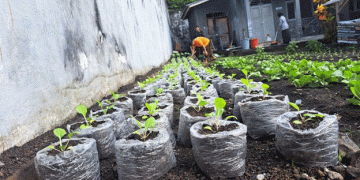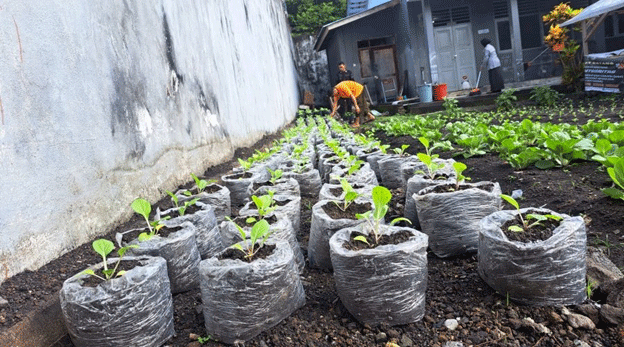In a remote corner of Indonesia’s Maluku Islands, the Bandanaira Class III Correctional Facility is proving that food security and rehabilitation can take root even where space is scarce. By adopting polybag cultivation, prison officials are growing pak choi and chili peppers on-site, reducing external food dependence while offering meaningful skills development for inmates.
This initiative is part of a broader national push aligned with the Asta Cita vision of the President of Indonesia and the 13 Acceleration Programs of Minister of Immigration and Corrections Agus Andrianto. The aim: contribute to national food resilience while empowering incarcerated individuals with practical agricultural skills.
The Power of the Polybag
The polybag planting system—where vegetables are grown in bags filled with soil, compost, and organic nutrients—is ideal for urban or space-constrained environments like correctional facilities. According to Acting Warden Nober Hasanda, it offers:
- Low space requirements
- Minimal investment in materials
- Ease of training and participation
- Clean and manageable operations, well-suited to institutional environments
The vegetables produced—especially chili, a daily cooking staple—reduce dependence on market supply chains and provide fresh, organic produce for the prison’s kitchen.
Education Behind the Walls
Beyond production, the polybag project is a key part of inmate rehabilitation and skills development. Participants are taught:
- Soil and nutrient management
- Organic crop care and pest control
- Harvesting and post-harvest handling
- Basic entrepreneurship in agriculture
As Nober notes, “Food self-sufficiency doesn’t require vast land or large budgets. It begins with a commitment to grow what we can, where we are.”
One inmate shared his excitement about the program: “I feel proud to learn how to grow vegetables. This gives me a sense of purpose and a skill I can use after release.”
National Relevance, Local Action
Indonesia faces growing challenges in ensuring food resilience amid climate variability and urban expansion. Correctional agriculture programs like Bandanaira’s contribute in multiple ways:
- Strengthening local food systems
- Building a culture of sustainability
- Reducing institutional food costs
- Rehabilitating through meaningful work
These outcomes align with broader government goals to build a self-reliant society, particularly in regions with constrained land access.
The polybag vegetable gardens at Bandanaira Prison are more than just a practical solution to limited space—they’re a symbol of hope, rehabilitation, and innovation. By teaching inmates how to grow food and think beyond confinement, the facility is nurturing both self-reliance and second chances. It’s a reminder that even the smallest gardens can yield a harvest of transformation.































